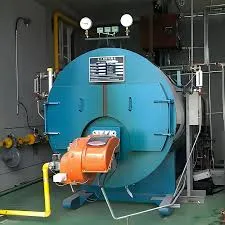
Oct . 16, 2024 06:03 Back to list
Cost Analysis of Industrial Water Boilers for Optimal Budgeting and Investment
The Price of Industrial Water Boilers Factors and Considerations
Industrial water boilers play a crucial role in various sectors, including manufacturing, energy production, and hospitality, among others. These systems provide essential hot water or steam for processes ranging from heating to power generation. As with any industrial equipment, the price of industrial water boilers can vary significantly, influenced by several factors. Understanding these elements is vital for businesses looking to invest in reliable and efficient boiler systems.
1. Types of Industrial Water Boilers
The first consideration when discussing the price of industrial water boilers is the type of boiler required. There are several categories, including fire-tube boilers, water-tube boilers, electric boilers, and biomass boilers. Each type has its unique construction, operating principles, and applications, which directly affect the cost.
- Fire-Tube Boilers These are typically used for lower capacity steam production, offering efficiency and simplicity in design. However, they tend to be less expensive compared to other types due to their straightforward construction. - Water-Tube Boilers Generally used in larger applications, water-tube boilers can handle higher pressures and temperatures. Their complex design leads to a higher price point but provides better efficiency and durability.
- Electric Boilers Although these are often more expensive upfront due to their electrical components, they can be cost-effective in terms of operational costs, especially in areas where electricity is cheaper than fuel.
- Biomass Boilers With the increasing push for sustainability, biomass boilers are gaining popularity. While the initial investment might be high, their renewable nature can lead to long-term savings and compliance with environmental regulations.
2. Boiler Capacity and Specifications
The size and capacity of the boiler significantly influence its price. Boilers are rated based on their output capacity, typically measured in BTUs (British Thermal Units) or kilowatts. Higher capacity boilers are generally more expensive, reflecting their ability to meet the demands of larger operations. Additionally, specifications such as efficiency ratings, design pressure, and fuel type can also impact pricing. For example, a highly efficient boiler that maximizes energy use might come with a higher initial cost but will save money in the long run through reduced fuel consumption.
industrial water boiler price

3. Material and Construction Quality
The materials used in the construction of industrial water boilers affect their lifespan and maintenance needs. Stainless steel, cast iron, and carbon steel are commonly used materials, with price variations based on their durability and resistance to corrosion. A higher-quality material may lead to a more expensive boiler, but it often results in reduced maintenance costs and enhanced operational longevity. Businesses should consider the long-term benefits of investing in higher-quality materials versus the initial savings of cheaper alternatives.
4. Installation and Additional Costs
The price of an industrial water boiler should not be viewed in isolation. Installation costs can vary based on the complexity of the setup, required modifications to existing infrastructure, and regional labor rates. Businesses should also factor in additional expenses such as plumbing, electrical work, insulation, and ongoing maintenance. These costs can significantly add to the overall investment and should be included in budget planning.
5. Regulations and Compliance
In many regions, industrial water boilers must meet specific regulatory standards concerning emissions, safety, and efficiency. Compliance with these regulations can influence the choice of boiler and, consequently, its price. Businesses may incur additional costs to upgrade existing systems or invest in new boilers that exceed the minimum regulatory standards. However, certifying compliance can also result in tax incentives or lower insurance rates, offsetting some of the initial investment.
Conclusion
The price of industrial water boilers can vary widely based on various factors, including type, capacity, materials, installation requirements, and compliance with regulations. Companies must carefully assess their specific needs and consider both initial investment and long-term operating costs. Engaging with qualified suppliers and industry experts can provide valuable insights and help businesses make informed decisions, ensuring that they select the right boiler for their operational needs while maximizing their return on investment. Investing in the right boiler can enhance productivity, improve energy efficiency, and contribute to a more sustainable operation, making it an essential consideration for any industrial operation.
-
High-Efficiency Commercial Oil Fired Steam Boiler for Industry
NewsJul.30,2025
-
High-Efficiency Biomass Fired Thermal Oil Boiler Solutions
NewsJul.30,2025
-
High Efficiency Gas Fired Thermal Oil Boiler for Industrial Heating
NewsJul.29,2025
-
High-Efficiency Gas Fired Hot Water Boiler for Sale – Reliable & Affordable
NewsJul.29,2025
-
High Efficiency Biomass Fired Hot Water Boiler for Industrial and Commercial Use
NewsJul.29,2025
-
High-Efficiency Biomass Fired Hot Water Boiler for Industrial Use
NewsJul.28,2025
Related PRODUCTS






















